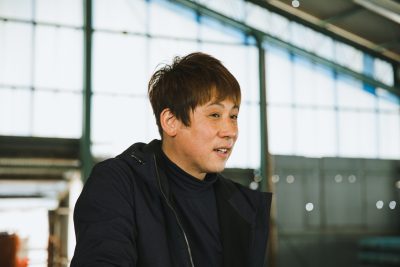Treasure in a hidden village: Kanten
Discover a traditional winter specialty
When winter comes, and the land gets covered in a veil of white frost, locals gather at the kanten "farms" to prepare for a new winter harvest.
Making kanten following the old methods means working at the cauldron during the night and then spend hours out in the glacial weather during the day.
It is tough work, but producers take tradition very seriously. And so, every winter for the last 200 years, they have laid out their kanten under the cold sky.
In this tour, we will visit a local kanten farm located at an altitude of 1,000 meters and the producer will guide us through the entire production process.
Kanten is produced in winter. During the tour outside of the production period, you can get a close-up look at and even go inside the tools, which are too dangerous to approach during production.
You can see and touch the huge kettle in which seaweed is boiled, the "nama-ten" that has hardened into a jelly-like substance, and the frozen product.
The visit will conclude with a tasting of delicious kanten-based dishes because the best way to discover new food is by eating it.
Even if you have never heard of kanten, there is a good chance you have eaten it at least once during your stay in Japan.
Kanten is, in fact, a key ingredient to many typical Japanese confectioneries. If there is something jelly-like in your traditional sweet, that is most likely kanten.
What is kanten made of?
Kanten is a by-product of a red seaweed called "agar."
You might be surprised to find seaweed in your dessert, but don't worry, kanten loses the sea-like flavor during the first stages of production.
But why is something made of seaweed produced in a mountain area?
We don't want to give away too much, but let's just say that one of the main ingredients is frost.
When making kanten, you are literally harvesting ice.
What makes kanten special?
Well, for one thing, kanten is a healthy food that is considered by many as the secret of the locals' longevity.
It is rich in fibers, has zero calories, and is suitable for people following a vegan diet.
More than that, though, kanten is a traditional food of the Yatsugatake area with more than 200 years of history on its back.
Kanten production has shaped the culture and gastronomy of the Yamaura.

Irisen is a kanten "farm" located in the foothills of the Yatsugatake Mountains at 1,000m of elevation, a place rich in clean air and pure water coming from Mt. Tateshina.
INFORMATION
| Period | February to November | |
|---|---|---|
| Due Date | 7 days prior the date of the activity | |
| Duration | 2 hr | |
| Schedule |
10:30 Explanation of how kanten is made 11:00 Visit the factory 11:30 Visit the fields where kanten is laid out & seasonal experience 12:00 Tasting 12:20 Visit the souvenir shop |
|
| No. of participants | Min. 1 persons / Max. 20 persons | |
| Price | / person | Adult (ages 13+): With 1 participant: JPY 10,340/person With 2 participants: JPY 5,170/person With 3 participants: JPY 4,437/person With 4 participants: JPY 4,070/person With 5 participants: JPY 3,850/person Child (ages 3-12): JPY 1,100/person Children must be accompanied by an adult. (All prices tax incl.) |
| Included in the price | English guide, tasting, insurance | |
| Payment method | Credit card | |
| Cancellation policy | 7 days prior: 30% of total amount 3 days prior: 50% of total amount 1 day prior: 70% of total amount Day of activity: 100% of total amount |
|
| Access | 25 min by car from JR Chino Station | |
Reservation
Other activities that you might like
-
History and CultureFood
Discovering the food traditions of the mountain villages of Nagano with Emiko Davies
Price: JPY 521,270/person Duration: 6 days, 5 nights -
History and Culture
Fujimori Terunobu Teahouse Tour
Price: From JPY 12,100/person Duration: 3 hr (Start time varies by season) -
Nature and Outdoor
Moss Forest Tour
Price: JPY 12,100/person Duration: 3 hr (start time is flexible)
Model Itineraries that you might like
-
History and CultureNature and OutdoorFoodFamiliesCouplesWinter
Active and comfortable winter vacation in Chino
Schedule: 5 days (4 nights) -
History and CultureFood
Journey into the frosty food tradition of the Yamaura
Schedule: 2 days 1 night -
History and CultureFoodFarming and Everyday lifeFamiliesCouples
Authentic Rural Japan Experience [Yamaura Stay- Kiyomizu & Hanato] 3 days 2 nights
Schedule: 2 nights 3 days












